Dealing with mouth dryness after radiation therapy for head and neck cancer



Dry mouth, also known as xerostomia, is a common side effect of radiation therapy, which is an essential part of the treatment of head and neck cancers.
Dry mouth, to some extent, has been known to affect almost 80% of people undergoing radiation for head and neck cancer.
How is dry mouth or xerostomia caused, and what are the symptoms?
Dry mouth is a common side effect of radiation therapy that can damage the salivary glands and is challenging to manage. Damaged salivary glands tend to produce less saliva, which is often thicker, leading to a dry feeling in the mouth. The amount of saliva gradually decreases for several months after radiation begins and leads to an inability to chew and swallow food properly, reducing the sensation of taste, increasing the risk of tooth cavities and impacting the quality of life.
Symptoms of dry mouth include
- Dryness or stickiness in the mouth
- String-like saliva that can stick to the lips when the mouth is opened
- Burning feeling on the tongue and in the mouth
- Trouble chewing, swallowing and tasting food
- Cracks on the tongue and lips
- Difficulty in talking
Dealing with dry mouth
Here are some practical tips:
- Visit a dentist prior to the initiation of radiation therapy and treat any possible cavities.
- Once radiation therapy starts, you can –
- Keep your mouth moist by chewing on ice chips, sipping cooling drinks or a mint
- Rinse your mouth every 2-3 hours with water, saline water or an alcohol-free mouthwash.
- Always carry a bottle of water to reduce the dry sensation instantly
- Sugar-free chewing gum has been known to increase the flow of saliva and can help temporarily relieve dry mouth sensations
- Avoid eating dry foods like toast, nuts or dry biscuits
- Avoid dehydrating beverages like caffeine and alcohol
- Avoid smoking
- Add flavour to foods, lemon juice, herbs and spices
- Sipping water or any liquid along with your meal helps you swallow food easily
- If you develop ulcers in your mouth, avoid tangy, citrus and sour foods
- Drink enough water
- Remember to clean your mouth regularly. Alcohol-free mouthwashes can help reduce bacterial growth.
- Some oncologists may prescribe artificial saliva if the dryness is extreme. These are available in the form of sprays, tablets or rinses and may help reduce the discomfort.
Dry mouth caused by radiation therapy may pose a lot of challenges. However, it is essential to have a clear conversation with your oncologist about this and take steps to manage this condition. Talk to your radiation oncologist about salivary gland saving radiation therapy called intensity modulated radiation therapy, or IMRT, which can essentially reduce the chances of damage to the salivary gland. Remember, awareness about your treatment and keeping the communication lines open with your oncologist can improve your quality of life when dealing with radiation therapy for head and neck cancer.
Dr.Siddhesh Tryambake
M.D, DNB,DrNB,ECMO
Consultant Cancer Physician
MOC Cancer Care & Research Centre, Pimpri Chinchwad.
Latest Blogs
-
![Nidar Naari is a movement initiated by M|O|C Cancer Care & Research Centre]()
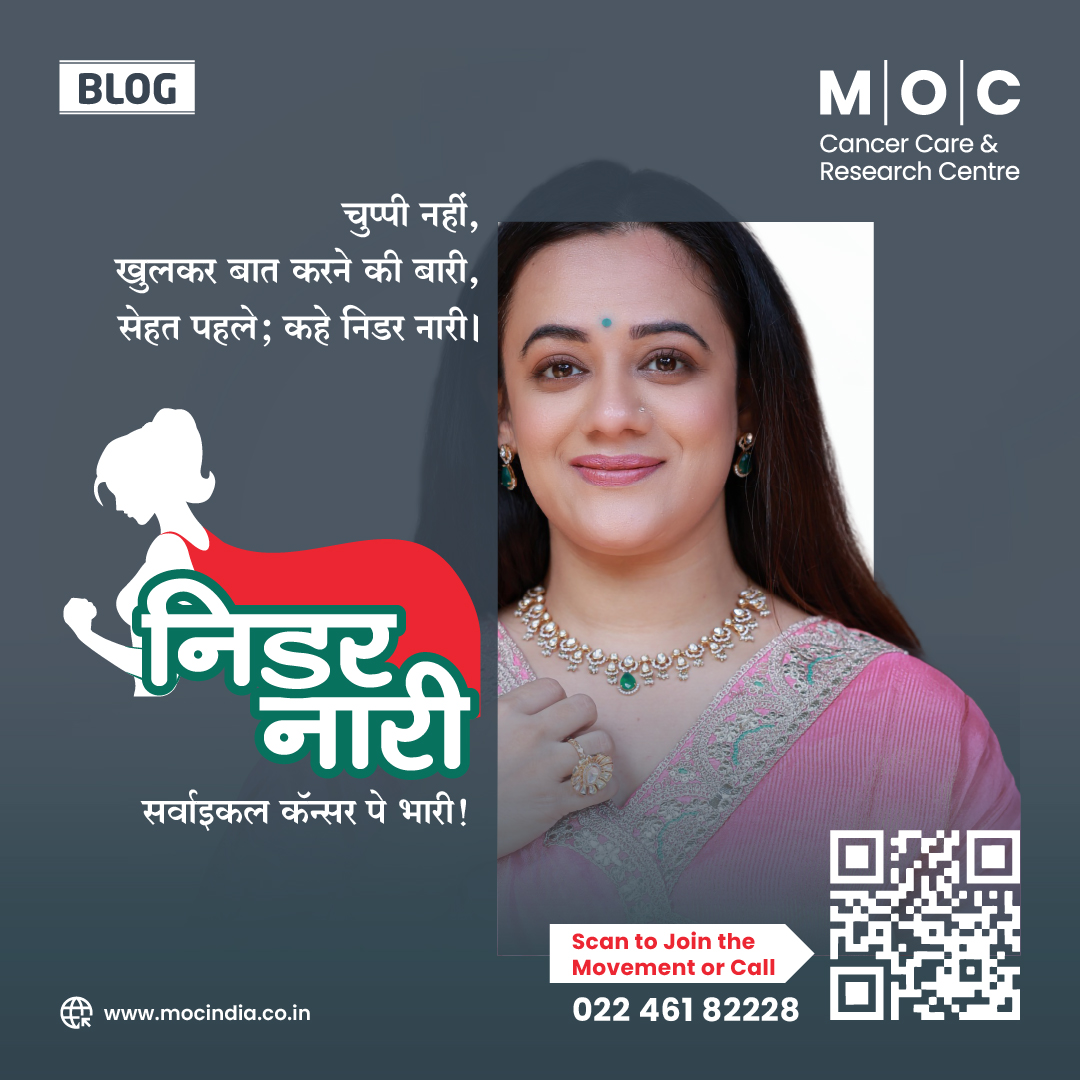
- 10th Feb, 2026
- Nidar Naari is a movement initiated by M|O|C Cancer Care & Research Centre
-
![Cervical Cancer Awareness Month- January 2026]()
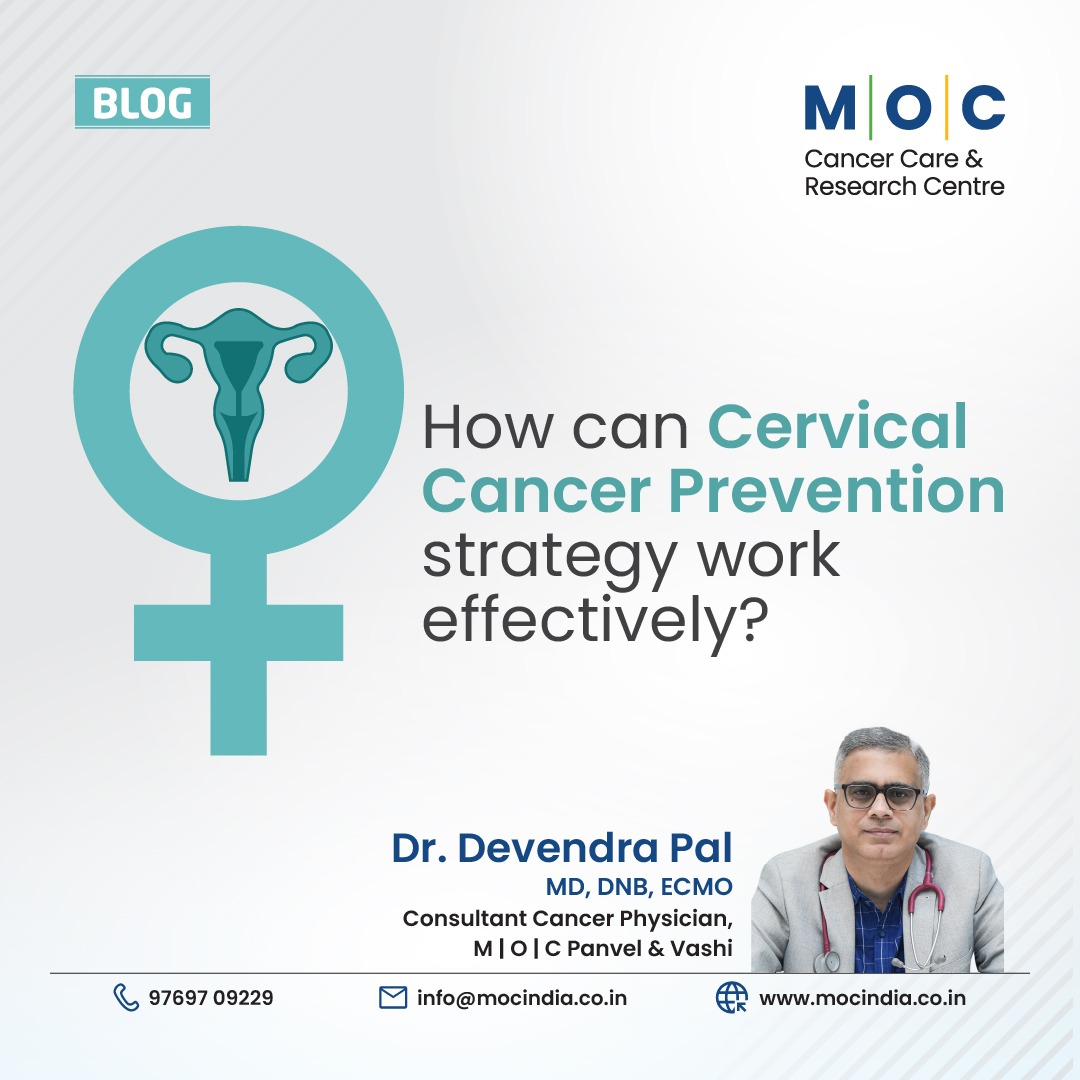
- 23rd Jan, 2026
- Cervical Cancer Awareness Month- January 2026
-
![Why Vaccinating Boys Against HPV is a Win for Everyone ?]()
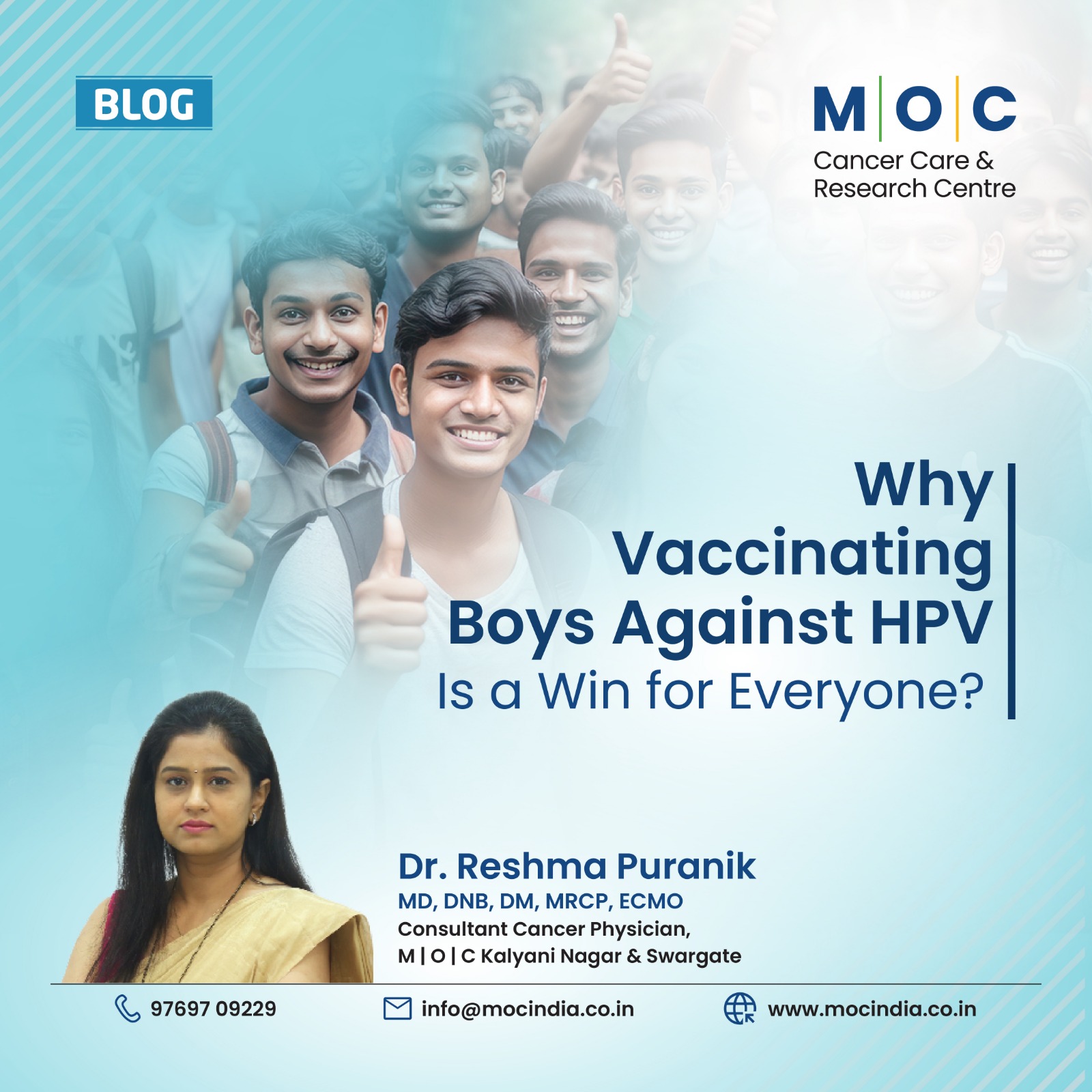
- 20th Jan, 2026
- Why Vaccinating Boys Against HPV is a Win for Everyone ?
-
![Are Pollution and Chemical Exposure Driving the Rise of Blood Cancer Cases in Children?]()
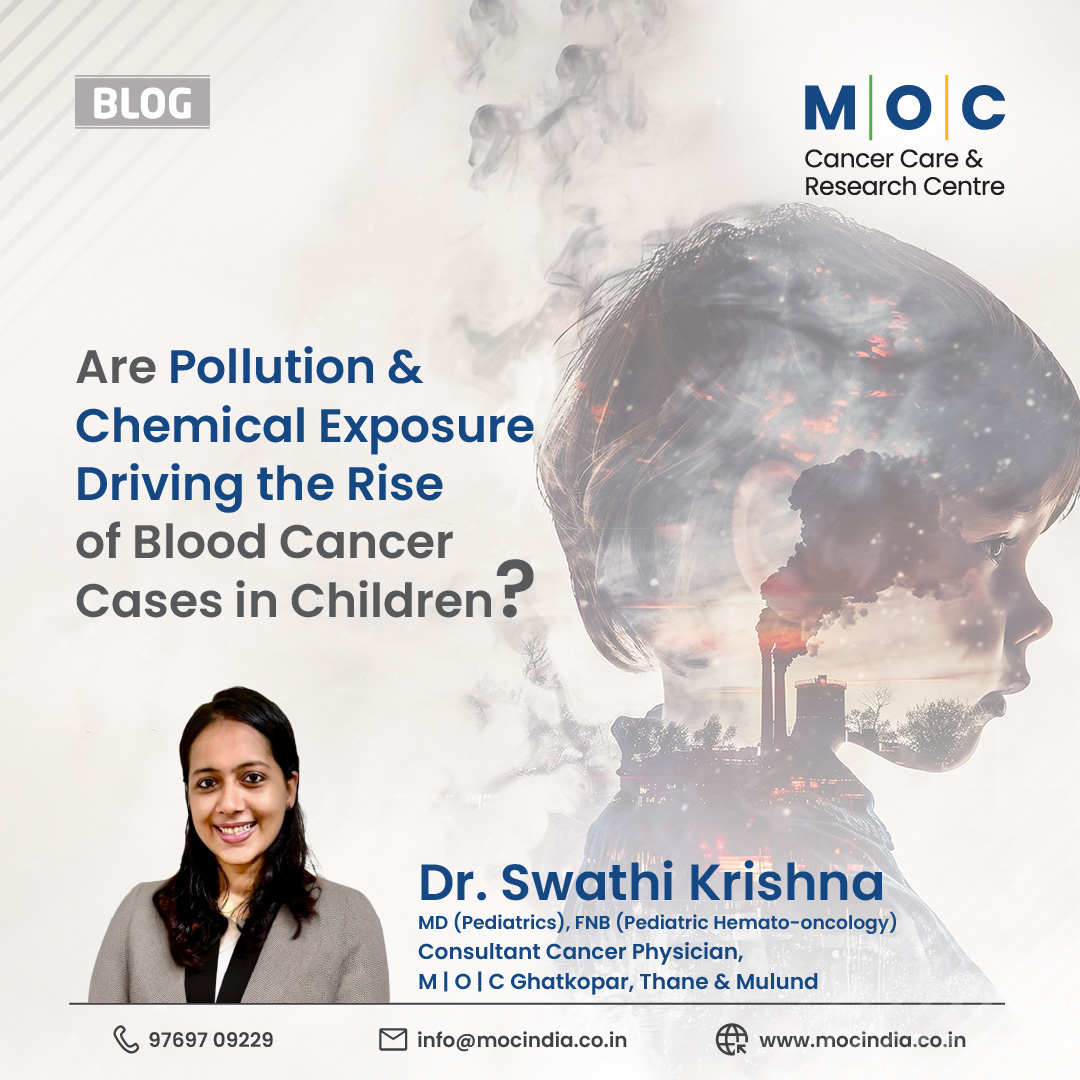
- 17th Jan, 2026
- Are Pollution and Chemical Exposure Driving the Rise of Blood Cancer Cases in Children?
-
![Significant Advancements in Cancer Treatment in 2025- Dr Kunal Jobanputra- M|O|C Kemps Corner and Mahim]()
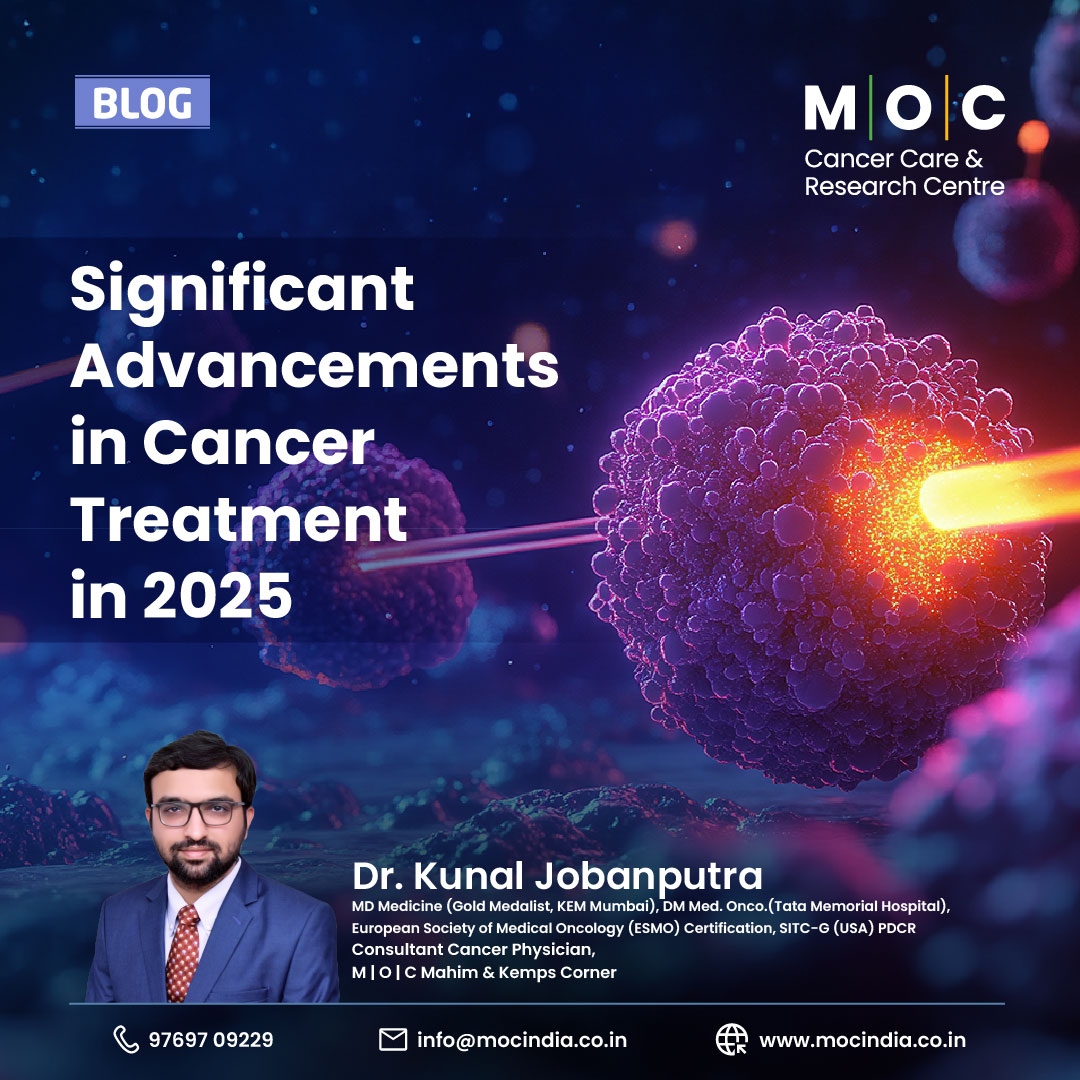
- 12th Jan, 2026
- Significant Advancements in Cancer Treatment in 2025- Dr Kunal Jobanputra- M|O|C Kemps Corner and Mahim
-
![Managing sleep disturbances during and after cancer treatment]()

- 11th Dec, 2025
- Managing sleep disturbances during and after cancer treatment
Book Your Appointment








